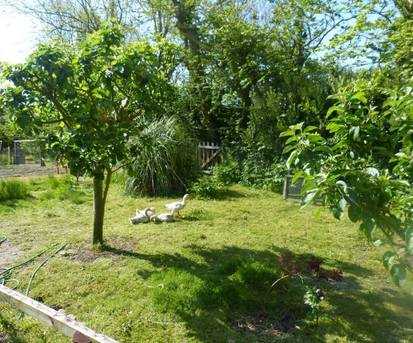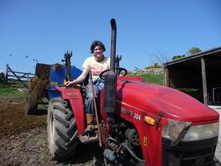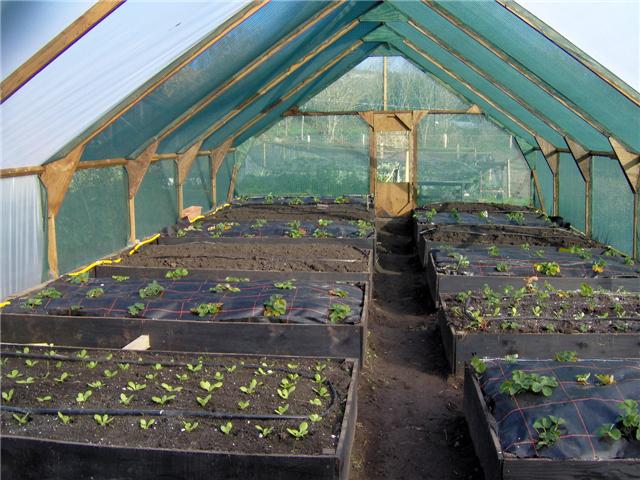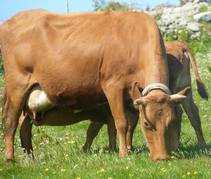IGCSE Agriculture

IGCSE Agriculture - Last exam date Autumn 2024
Little Arthur prides itself in being one of the few schools or colleges in the country offering children 14-16 ,as well as adults, the opportunity to gain an internationally recognized qualification in Agriculture at this level. Whilst farming is of such fundamental importance to us all, the subject is woefully missing from the conventional school curriculum, the merest lip service being paid to it in tiny sections of Geography or Biology courses. At Little Arthur, we specialize in Agriculture and Environmental Management as part of our on-going commitment to bringing a little "green" into the education of future generations. As long as you have access to either a garden, allotment, smallholding or farm on which to carry out your practical activities or can volunteer at a city farm, a garden centre or even offer to help at a neighbour's holding to give you access to growing opportunities and work with livestock, you are in a position to tackle the IGCSE Agriculture course. Access to a computer will also be helpful when you come to preparing your final submissions, though this is not essential.
The course is divided into three sections - theory, practical work and experimental skills
On the theoretical front, this part of the course provides students with general background theory on soil structure, types of farming, land preparation, the sowing of crops, pollination, general principles governing the harvesting and storing of crops. It looks at types of plant disease and pests and discusses ways in which both can be managed. The digestive and reproductive systems of farm animals are explained and the different types of rations that can be fed to livestock considered. Again, disease is discussed and methods for controlling health problems investigated. Students also study farm structure, the use of tools and their maintenance, guidelines governing the siting of farm buildings and choice of building materials. It is also considered important that students have an appreciation of farm finance and the factors that govern supply and demand. By the end of the course, students are expected to have a good overall understanding of the basic principles of farming and be able to relate these to their own locality. Throughout the course, students are encouraged to choose specific crops and livestock to study so that learning is relevant to their own environment. Pests and weeds exist the whole world over - you will not be expected to know the kind of weeds found in Africa/Australia/India. You will be expected to know the varieties of weeds found in your local fields! It is only through actually becoming involved in your own growing projects that you will learn how to deal with local conditions, plant local varieties of crops and tend farm animals appropriate to your local environment.

However, farming is very much a practical, hands-on, occupation and so the theoretical side of the course is balanced by practical application.
All students will need to keep a farming diary. This should record your farming/gardening activities and should include notes on what you have done along with photographs of your operations. Records help all farmers learn from their experiences and develop better systems and practices. Because agriculture is such a practical activity, CIE are keen that students develop practical skills and that credit be given for dexterity, perseverance and ability to see a job carried through to the end - a plot neatly edged and tools cleaned and put away!
To assess this, students will be sent instructions for four specific tasks, such as preparing a seed bed or sowing a tray of seeds. These tasks need to be carried out and documented and will later be assessed as part of your final grade. To verify that your pictures and accounts are, indeed, your own work, these tasks are later carried out at our centre, for verification by our accredited agriculture teacher.

Finally, all students are required to carry out experimental work. This might be an investigation into the optimum spacing for carrots or a comparison of the benefits of different cultural practices. Work is carried out and documented by the student and a final project of 1000 words submitted .
The final exam consists of one written paper. This is usually time-tabled in the first half of October. Students need to attend our centre in the Isles of Scilly to take this exam and complete their practical assessments (many combining this with a family holiday in the islands!) The cost of travel and accommodation is not included in the price of the course and, as with all IGCSE courses, exam fees are paid separately.

Our new course, restructured to keep up with the latest changes to the CIE syllabus specifications, has been carefully organised to make it more manageable, both in regard to integrating practical and theoretical study and to financing your studies. We now offer Agriculture as a three-part course:
Part I: This covers the choices facing farmers, soil and crops and introduces students to keeping a diary and carrying out some of the practical tasks.
Part 2: This covers livestock and introduces students to carrying out their experimental project.
Part 3: This covers farm structure and brings together the practical tasks, the project and revision for the exam.
This course is suitable for students 14+. It does not assume previous learning in agriculture but it does require basic maths and English skills. Prior study of biology, even at Key Stage 3, is helpful and an ability to word process and produce photographs and graphs on a PC is an advantage.Like most IGCSE courses, a guideline of 150 hours study time is suggested but you should allow extra time for working on practical activities and carrying out your own farming and gardening activities. Students are reminded that they will need to attend the school centre, in the Isles of Scilly, in October of the year of their exam, to take the actual exam and to perform the practical tasks set. Travel, accommodation and exam fees are not included in the cost.
Agriculture Part 1: £260
Agriculture Part 2: £260
Agriculture Part 3: £160